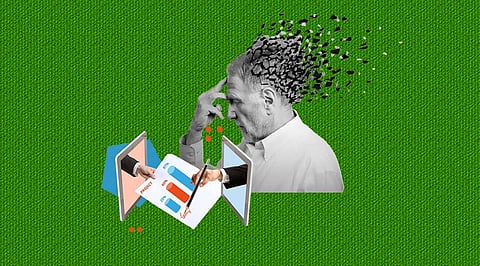

There have always been conundrums and paradoxes with Alzheimer's illness. The difficulties have stemmed from studies where "we can only connect the dots a pair at a time," according to PNNL researcher Vladislav Petyuk, whose work on the degenerative, age-related condition covers more than a decade.
At PNNL, Petyuk's research spans a variety of biological and computer science subfields. In numerous publications, he has written about Alzheimer's illness. However, he can now see that the needle is heading in the right way.
Research has shifted focus in the last ten years from a single medication target to proteins that play a role in cognitive resilience, according to Petyuk.
The ability of the brain to function even under conditions of severe neuropathology associated with Alzheimer's disease, which would often result in the disease's signature dementia, is known as cognitive resilience. This indicates that while some people's brains exhibit disease-related symptoms, their ability to function is unaffected. It's unclear what causes certain brains to be sensitive and others to be resilient.
Petyuk recently worked with a multi-institutional team on a study that looked at a sizable cohort of Alzheimer's patients—more than 1800 persons. To find key themes in early diagnosis, disease prevention, and treatment, the researchers used previously collected blood samples, brain tissue, and extensive Alzheimer's data analysis.
The study results, which were published in Science Advances in November 2022, provide insight into how each patient's dementia caused by Alzheimer's disease progresses. The research also presents a layered biological classification system that forecasts the severity of the disease and upcoming neurological symptoms. According to Petyuk, analysis of a patient's blood and brain proteins, as well as other biological molecules, reveals patterns that can be targeted for specific interventions.
Given that November is Alzheimer's disease awareness month, the discovery couldn't have come at a better time. There are 5.4 million Americans 65 and older who have Alzheimer's disease. The figures increase every year as the population ages.
Proteomics studies are a common name for these kinds of extensive investigations into proteins and information relating to proteins.
Among other things, PNNL's proteomics research requires the capacity to evaluate very huge Alzheimer's data sets. In the fight against Alzheimer's disease and associated dementias, examining, identifying, and finding proteins can help identify several new therapeutic targets as well as provide answers to particular biological concerns concerning their function in the disease.
Petyuk has participated in six published research articles this year alone by utilising PNNL's cutting-edge proteomics technology to address these important problems and close knowledge gaps. The research supports the strength of discovery in the proteomics platform at PNNL as well as the strength of Petyuk's international team's collaborative efforts.
The misfolding of proteins is the cause of some illness symptoms. Proteins must be in a precise form in order to function properly, and just as when baking a cake, altering the recipe might lead to an improperly shaped final product. Protein dishes may alter as a result of Alzheimer's disease. This study adds to the growing corpus of research on the disease-related proteins involved in cognitive decline. These proteins could point to potential new drug targets.
The puzzle is only put together one bit at a time, with a lot of smaller pieces that make sense but a wider picture that has yet to be seen, even with such a large piece of research. At the Montreal Neurological Institute of McGill University, Petyuk and team leader Yasser Iturria-Medina continue to work on projects that further our understanding of a difficult and fatal disease. This suggests fresh research and new components for the Alzheimer's disease jigsaw.
Join our WhatsApp Channel to get the latest news, exclusives and videos on WhatsApp
_____________
Disclaimer: Analytics Insight does not provide financial advice or guidance. Also note that the cryptocurrencies mentioned/listed on the website could potentially be scams, i.e. designed to induce you to invest financial resources that may be lost forever and not be recoverable once investments are made. You are responsible for conducting your own research (DYOR) before making any investments. Read more here.
